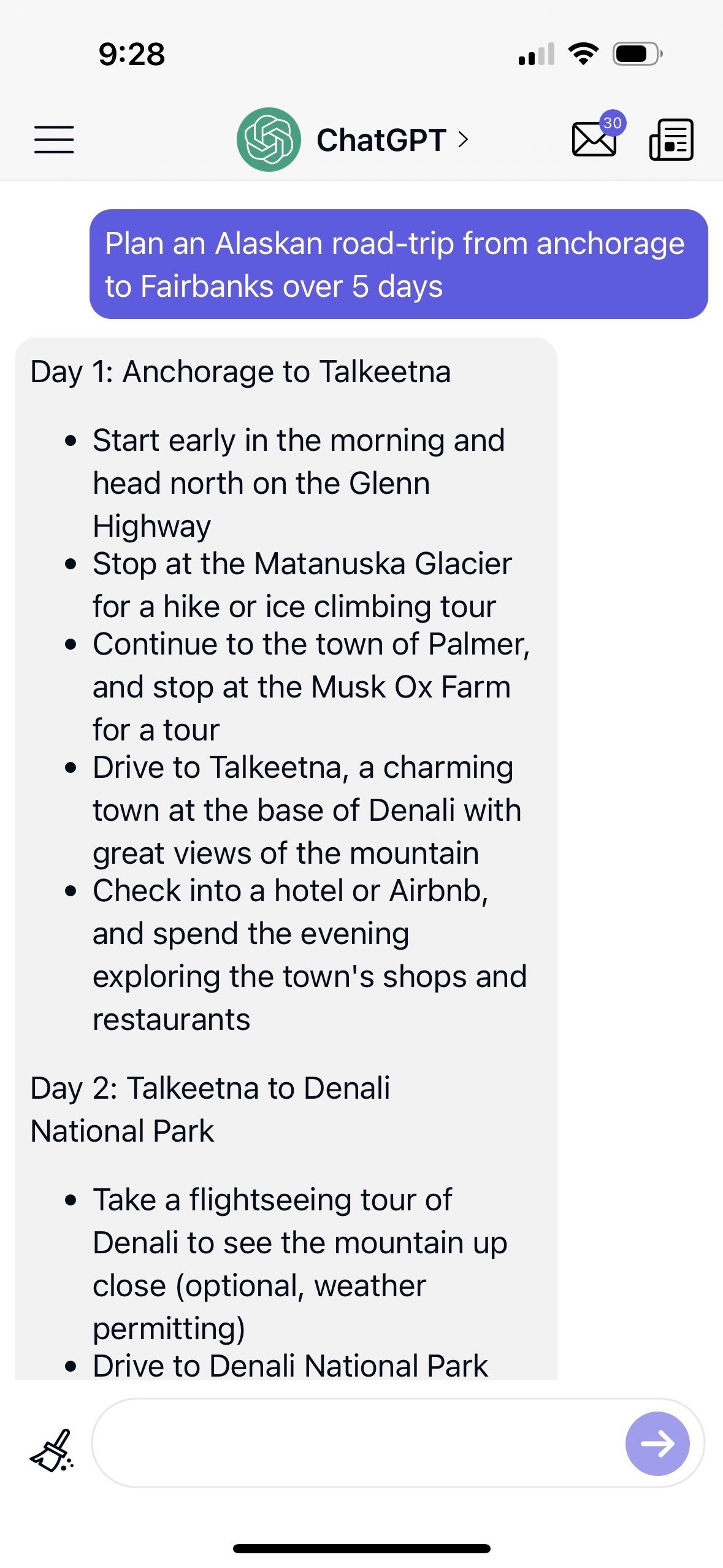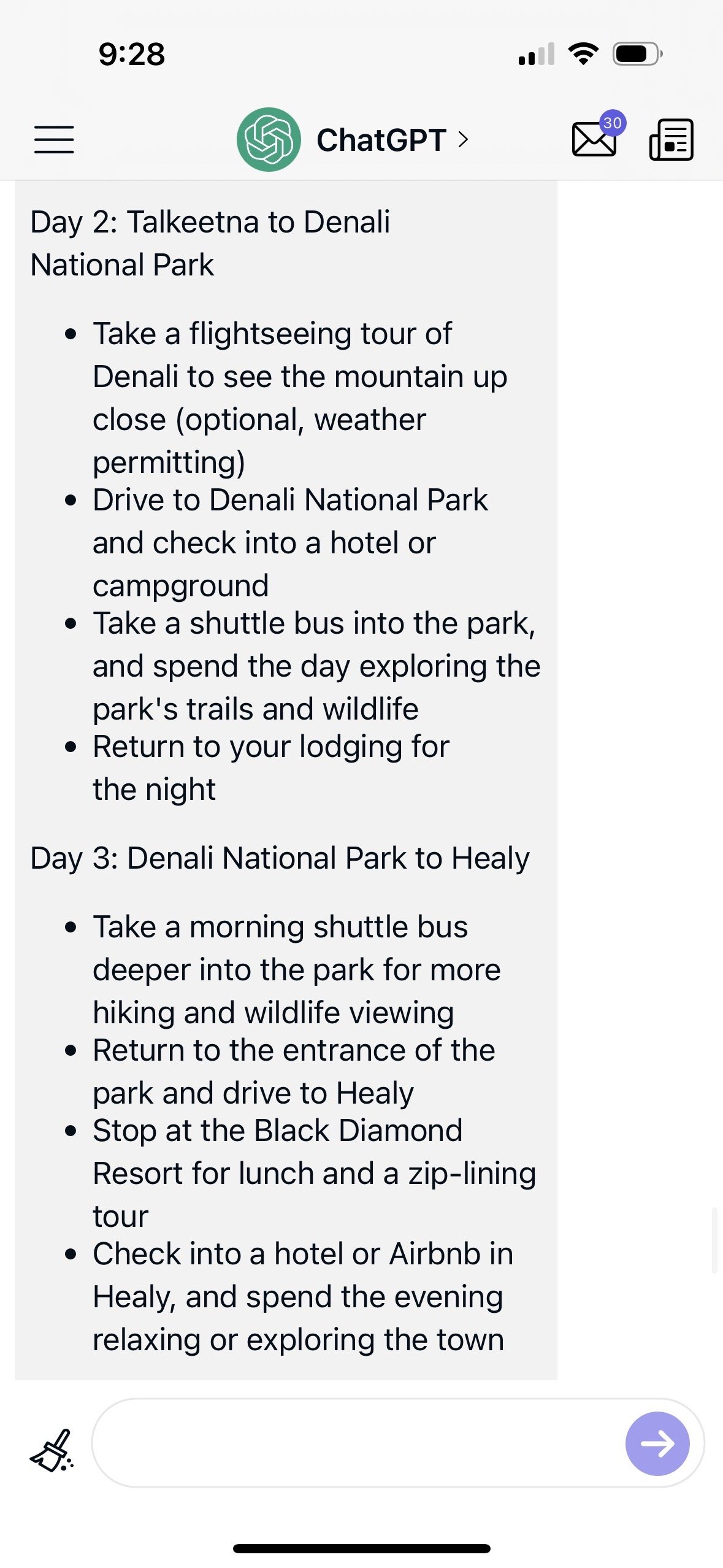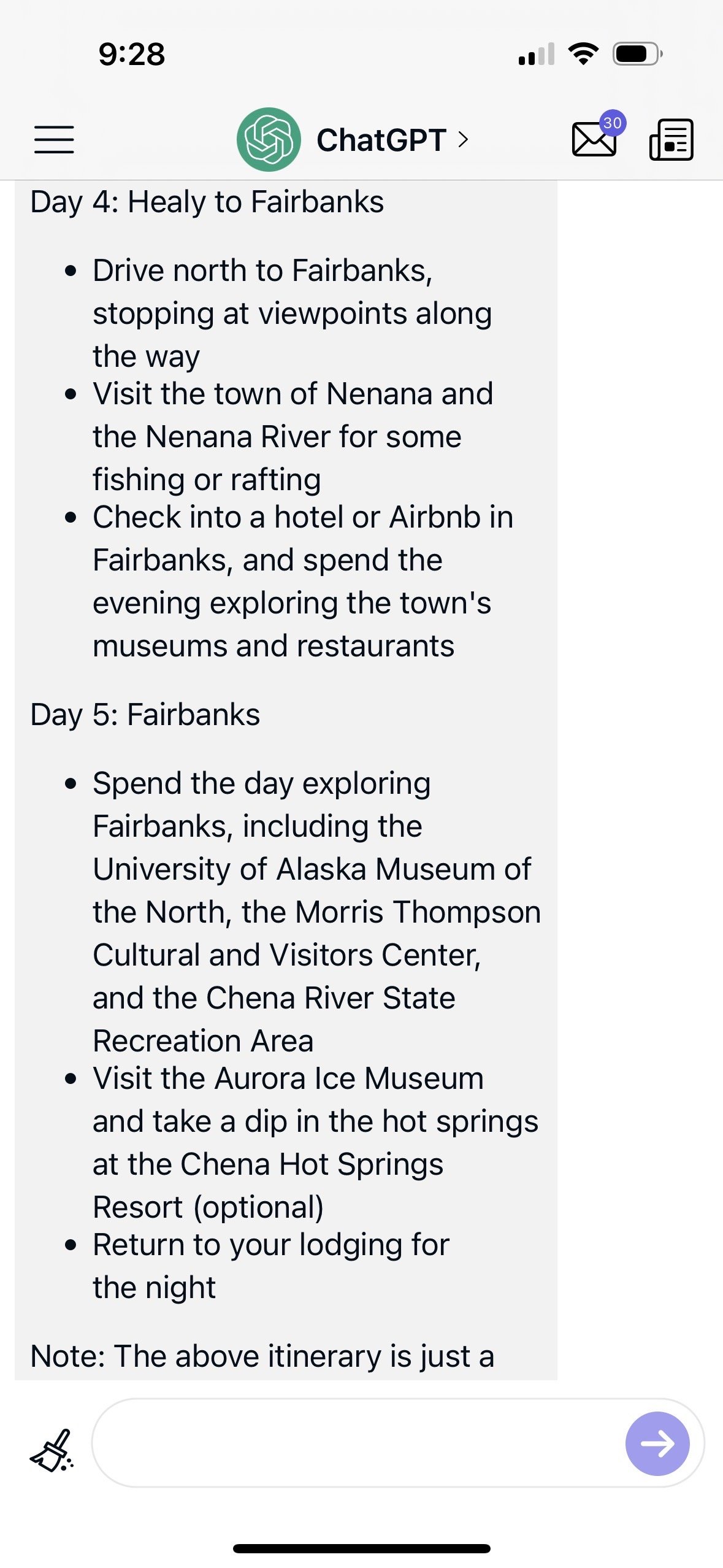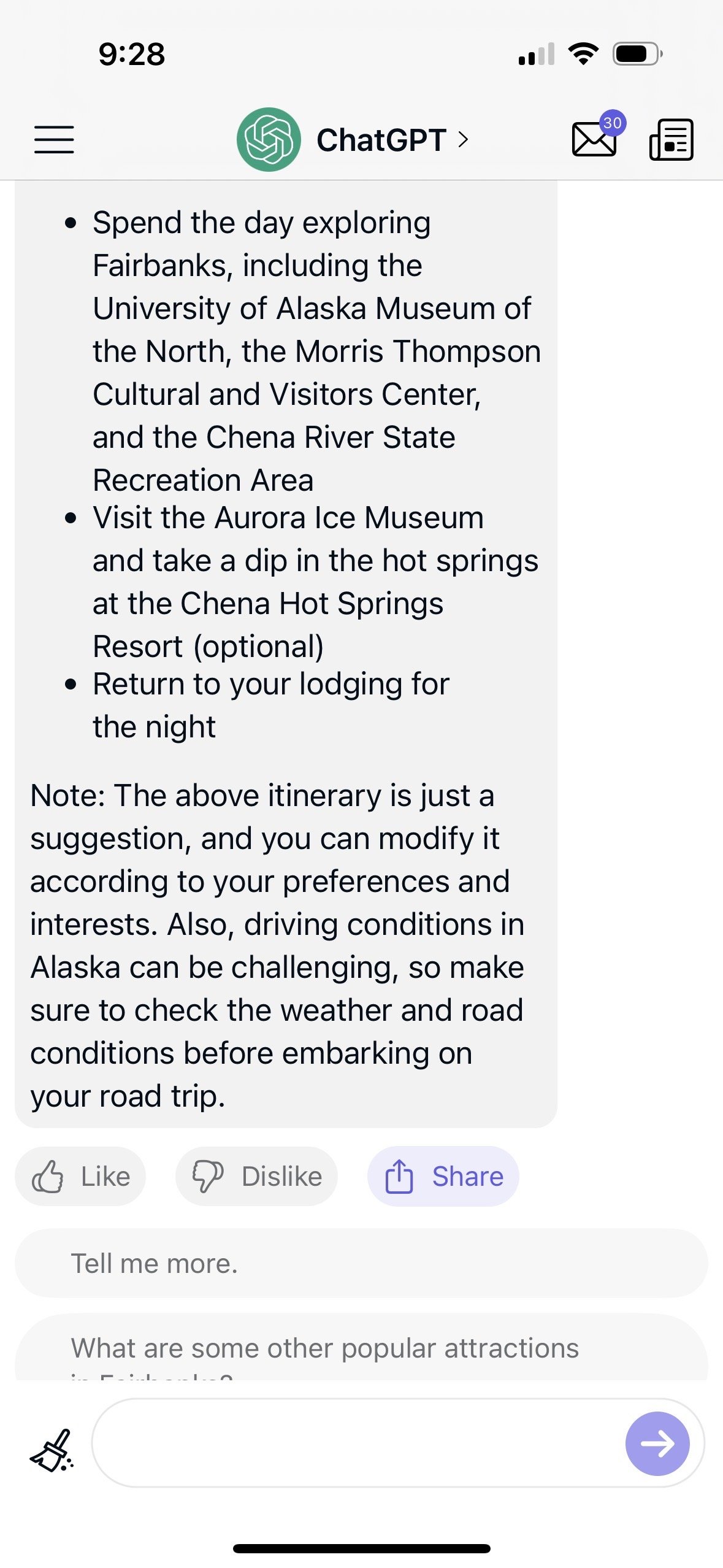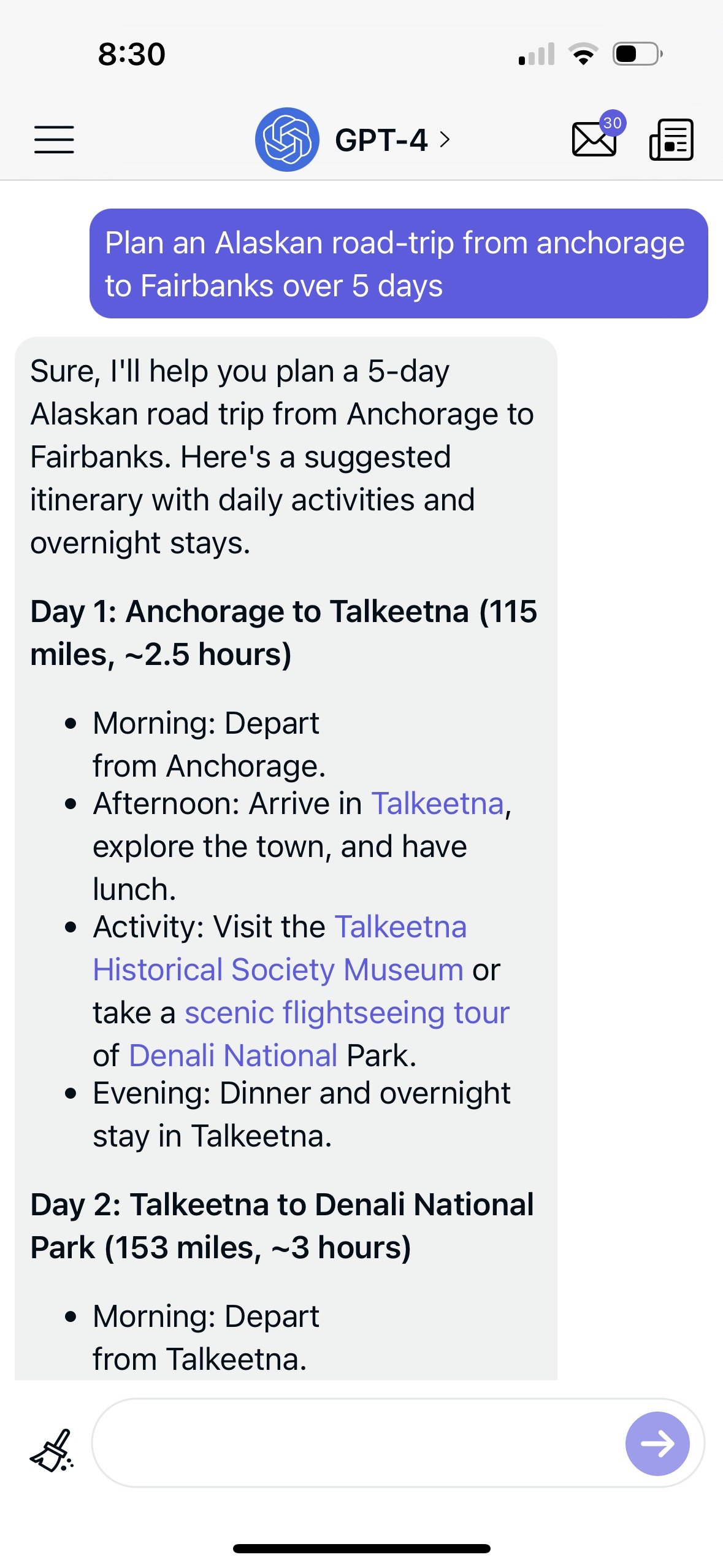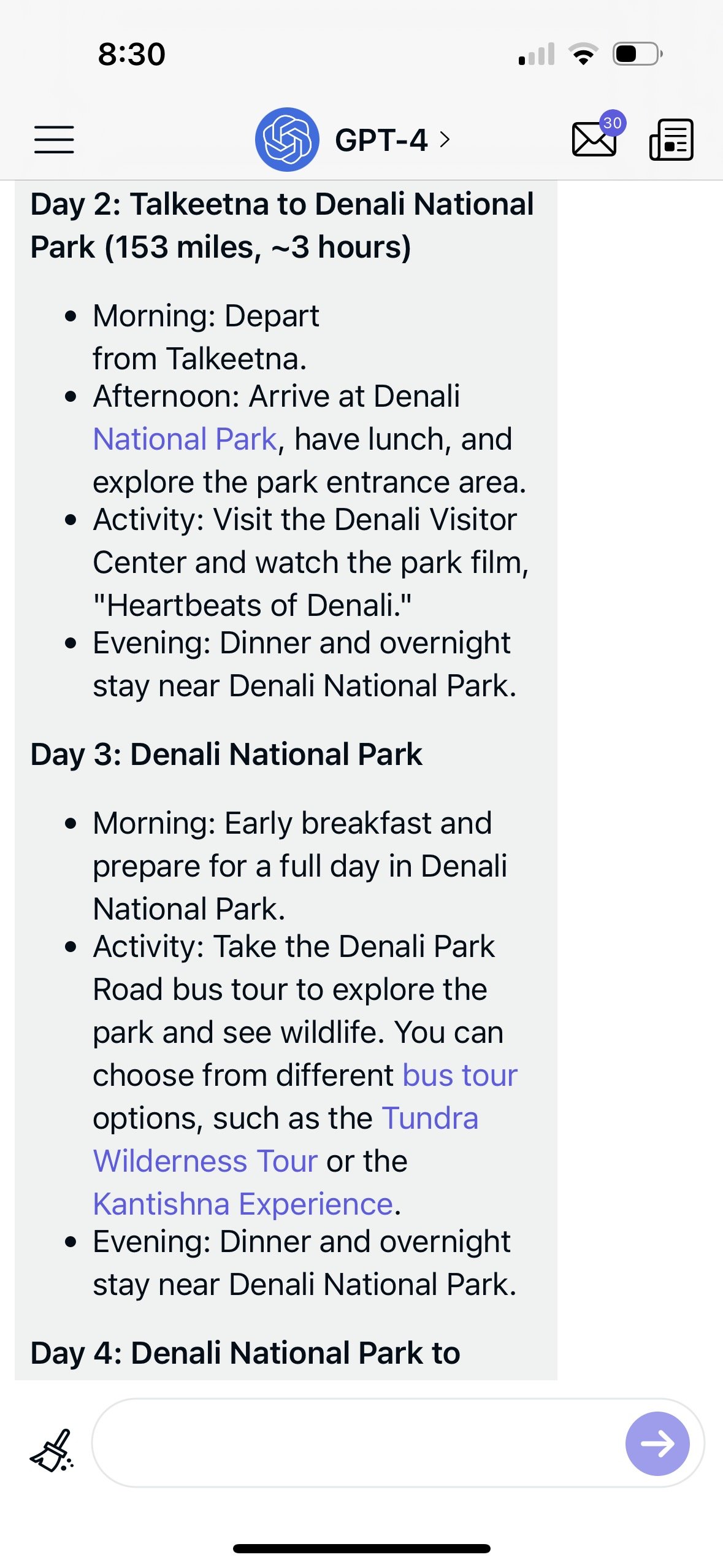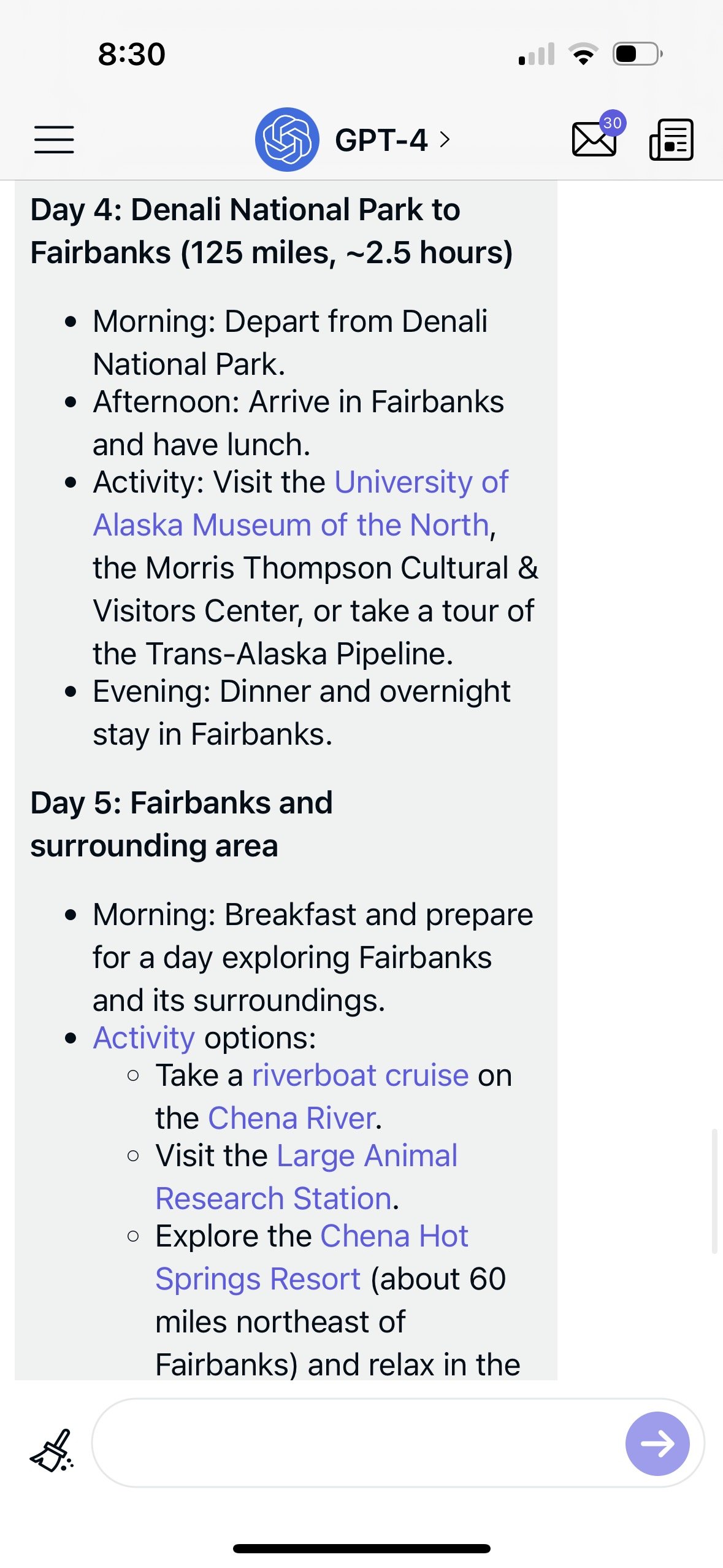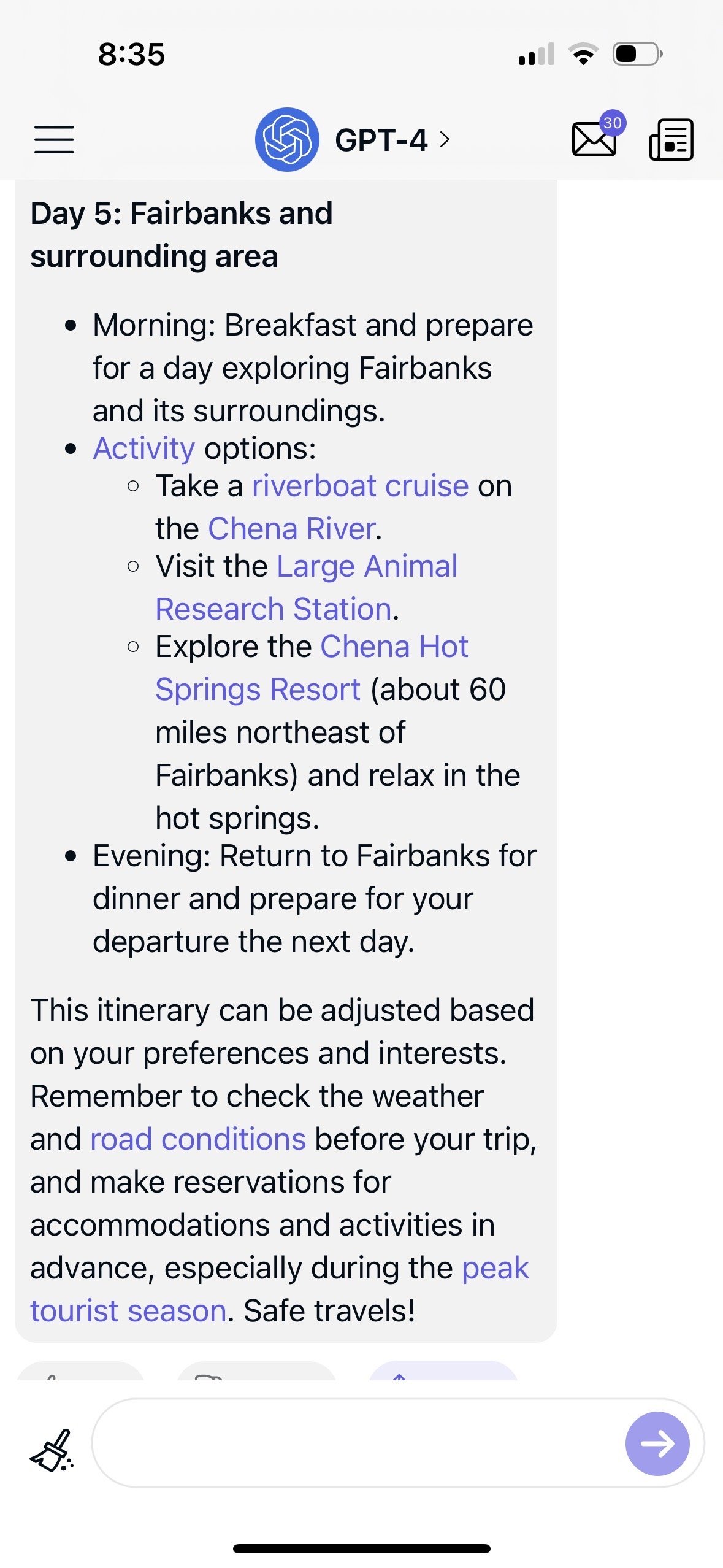I asked Bing, ChatGPT, GPT-4, and Bard to plan my summer vacation, and this is what happened.
AI is very buzzy right now and with good reason. The language learning models that the tools have been built on and subsequently trained are impressive in their ability to not just provide answers (that’s what search engines are for!) but to take the intent behind the question and expand with additional details, context, and nuance.
As many blog readers know, one of my greatest obsessions is understanding traveler’s user journeys - how did they decide to visit this destination? How did they narrow down their hotel selection? What influenced their decision to ultimately book? With AI-powered Chat tools, I wanted to investigate how they would be used in a traveler’s trip research and what potential implications could be for my lodging clients.
—
The prompt: Plan an Alaskan road-trip from Anchorage to Fairbanks over 5 days.
Bing said:
Although Bing’s response was shorter than ChatGPT and GPT-4 it packed in a lot of value, providing estimated driving hours and activity suggestions. Bing relied on its expertise in Search to give the user the option to learn more through visiting different, reputable sites.
ChatGPT said:
ChatGPT immediately replied with its Alaskan road trip ideas that were more advanced than the simple “drive from Anchorage to Denali, Denali to Fairbanks”, including additional stops in Talkeetna and Healy, along with a recommendation to eat lunch at the Black Diamond resort. The tone still felt clinical when stating that an activity was optional, (aren’t they all optional in this stage of planning?) along with a reminder to watch for safe driving conditions.
GPT-4 said:
Of the tools used, GPT-4 was by far the most detailed and complex. GPT-4 included mileage between each stop and estimated driving time, while also providing specific bus tour options. What really set GPT-4 apart was the inclusion of hyperlinks to each of the different recommendations. This is a critical step in making the user experience seamless, allowing the user to further explore the suggestions and providing more value. Suddenly being told about road conditions no longer feels like a parental warning, instead becoming a resource that I would bookmark throughout my trip planning and on the vacation itself.
Bard said:
Bard was the slowest of the tools to load and had the least detailed recommendations; “explore the city’s museums, shops and restaurants” rather than specific locations, but the tool still hit the high notes by recommending the primary attraction on the drive, Denali National Park. As Google has noted, Bard is still in the beta phase and within Bard’s answers, the user can “view other drafts” of potentially different itineraries. In my experience, the other drafts were the same content, presented in a different tone of voice.
—
As a traveler, the benefit of these tools is clear - in addition to asking family and friends, search engines, blogs, YouTube, and other sources for trip planning advice, there is an “expert” at your fingertips.
As a marketer, AI chat tools can serve as powerful reminders that content is king. Without knowing the specifics, we can infer that each of the chat tools has been taught a language model that is connected to other public internet sources such as Wikipedia, Google, and TripAdvisor, and is likely groomed to pay attention to a location’s listing accuracy, review score, and popularity. This means it is more critical than ever that hotels keep their NAP (Name, Address, Phone Number) information updated across all platforms, respond to reviews, keep their websites current with new copy and imagery, refresh their FAQs, and of course, leverage strategic search engine optimization.

